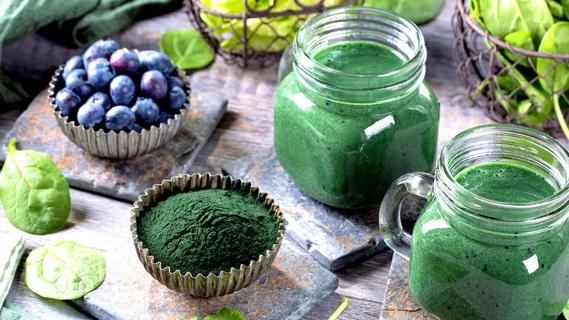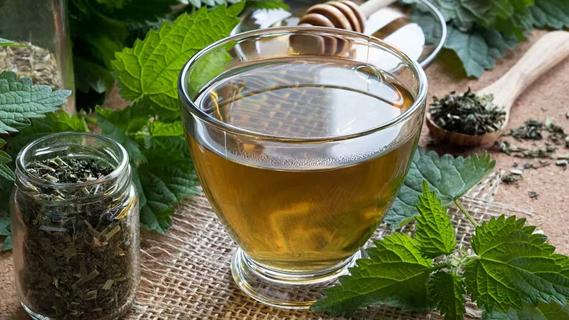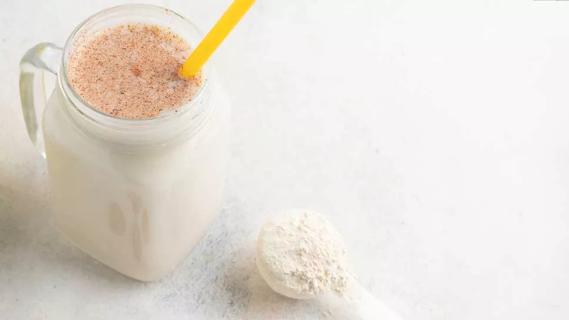Manufacturers don't have to prove benefit or disclose risk

“What side effects should I be watching for?”
Cleveland Clinic is a non-profit academic medical center. Advertising on our site helps support our mission. We do not endorse non-Cleveland Clinic products or services. Policy
This is one of the first questions people ask when prescribed a new medication – and for good measure.
The Food and Drug Administration (FDA) has guidelines that require manufacturers to disclose side effects of prescription medicine. This is meant to inform the prescribing physicians and the patients taking the medicine about the risks and benefits of these substances. Drug advertisements even require that manufacturers disclose side effects of the medicine, along with the benefits that clinical trials have demonstrated.
But, these disclosure requirements are not the same for vitamins and supplements. For these, the FDA requires that they are generally safe and that the labels are not “misleading.” But proof of benefit and disclosure of risk is not required from the manufacturer.
“It’s recommended to always talk with your doctor before taking any sort of supplement,” explains internal medicine specialist Ronan Factora, MD. “Unregulated supplements can pose a serious risk if taken with other medicine, in excessive amounts or taken for an unconfirmed medical problem.”
But it’s not all bad news. In certain scenarios, adding a supplement into your wellness routine can tout some health benefits. Adding in some extra vitamin D during the dreary winter months or supplementing with a protein shake when you’re on the go typically won’t do you any harm.
But it’s recommended to work with your primary care doctor prior to taking any supplement. They can look at the product and evaluate and analyze it based on data and research – not from what the label is claiming it can do.
Still, it’s always best to get the majority of your nutrients and minerals from real food, not supplements.
Lack of knowledge about the risks of supplements can sometimes lead to potential and unforeseen problems.
Vitamins are generally considered safe by the general public and used by a large percentage of the population. In one survey, half of the people age 50 to 64 took vitamins, which rose to 68% in those 65 and older. Though vitamin C and vitamin B12 are generally considered safe in any amount, excessive amounts of certain vitamins are associated with harm.
Some harmful side effects include:
Though it’s relatively easy to look at a single supplement to see how much of a vitamin you’re taking, this becomes more difficult to track when you’re taking multiple supplements – particularly when the products contain multiple components or proprietary blends.
For herbal supplements, it’s worthwhile to know how they could potentially interact with other supplements and, more importantly, with prescription medication.
“Garlic, ginger or ginkgo extracts could potentially interact with blood thinners and increase the risk of bleeding,” says Dr. Factora. “And St. John’s Wort is commonly taken for depression, but it can interact with other antidepressants being taken at the same time.”
Herbal extracts and supplements are often metabolized in the liver and some may have a direct impact on the metabolizing of prescription medications.
Extracts and supplements can even cause medicines to last longer than they’re intended to or can reduce the amount of time they’re effective.
Supplements that have been known to negatively affect liver metabolism include echinacea preparations, kava, certain types of cinnamon and maleleuka. Medications that could potentially be affected include statins, which are used to control cholesterol, and a number of antidepressants and anti-seizure medications.
“Speaking with your doctor can help determine potential interactions,” says Dr. Factora. “Often, asking the pharmacist about any specific concerns you have about a new supplement is worthwhile, too. It’s always better to be safe than sorry.”
Learn more about our editorial process.

The supplement shouldn’t replace a healthy diet, but it can help you get in your fruits and veggies

Breastfeeding supplements can be a needless expense at best, and risky at worst

This edible insect powder can be a good source of protein, fiber and other nutrients

There’s no evidence to prove this supplement can help with weight loss, and it may come with risks

This mineral improves brain function, lowers inflammation and is vital for strong bones

Getting your nutrition from your food is a safer route

Milk thistle research is limited, but shows promise for liver health, diabetes and more

In a world of confusing choices, your healthcare provider can be your best resource

Your metabolism may torch 1,300 to 2,000 calories daily with no activity

A gentle touch in all the right places may help drain your sinuses